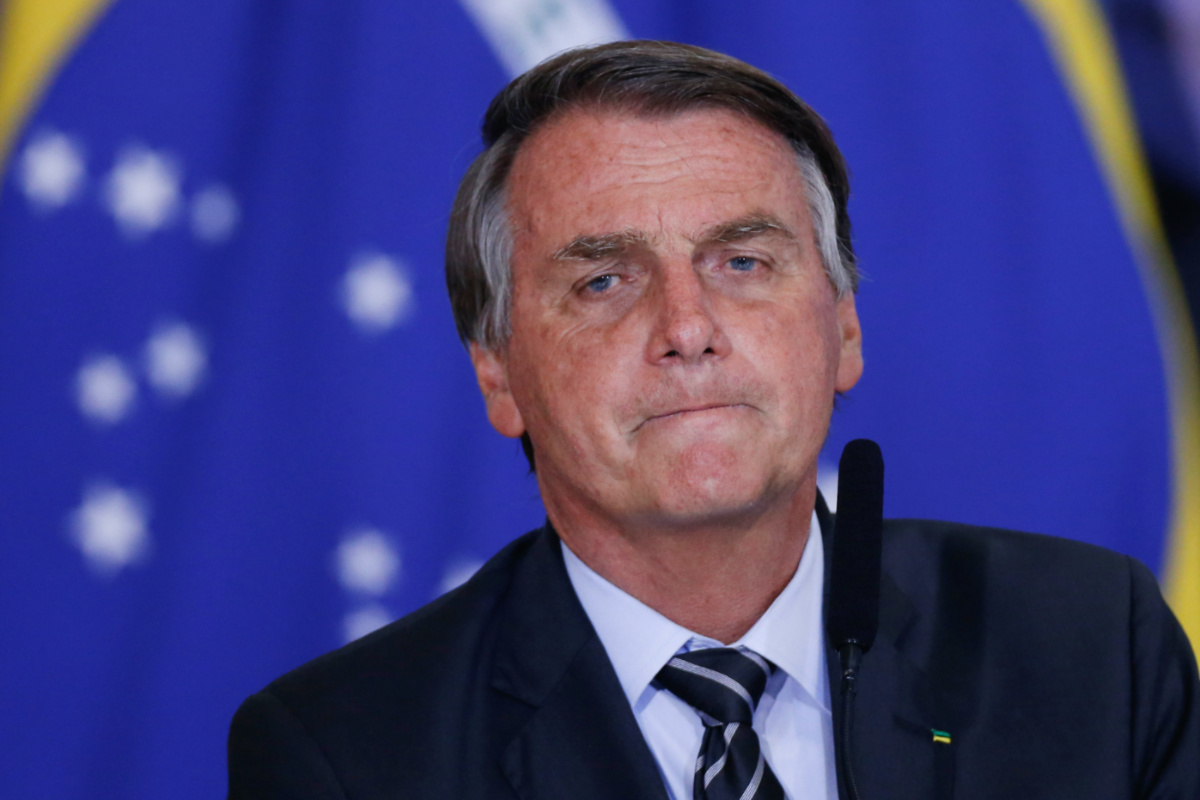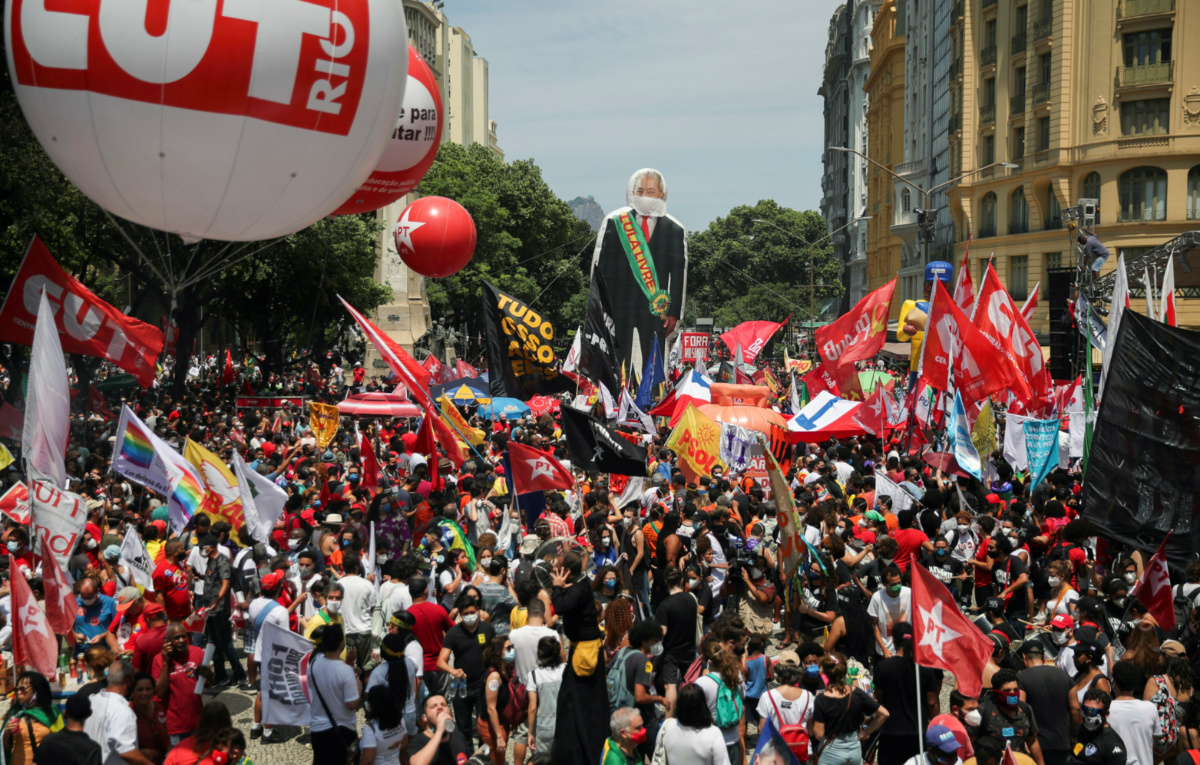São Paulo, Brazil
Once a reliable part of President Jair Bolsonaro’s constituency, evangelical Christians in Brazil – especially Pentecostals and neo-Pentecostals – have been showing lately that they will not give him a blank cheque to do what he pleases, like staging a coup d’état.
In fact, it seems to be quite the opposite. If, in the 2018 presidential election 70 per cent of the evangelicals voted for Bolsonaro in the second round, now only 29 per cent of them still approve of his administration, according to a recent poll conducted by the institute Datafolha.

Brazil’s President Jair Bolsonaro looks on during a ceremony at the Planalto Palace, in Brasilia, Brazil, on 14th September. PICTURE: Reuters/Adriano Machado.
“If part of the evangelicals still supports Bolsonaro, most of them have distanced themselves from him due to the prolonged economic crisis in Brazil,” affirmed José Eustáquio Alves, a demography professor at the National School of Statistical Science.
“The prices of items like food and gas have gone up, and unemployment is high. If the evangelicals are abandoning Bolsonaro in electoral terms, they will never support a coup attempt,” he argued.
Evangelical masses failed to attend national rallies in support for Bolsonaro on 7th September – Independence Day in Brazil. The far-right President hoped he would raise the pressure against the Supreme Court, which is conducting an inquiry on the dissemination of fake news by Bolsonaro and his supporters.
Many feared that the Bolsonarist masses could give substance to a coup d’état, with Bolsonaro shutting down the Supreme Court. But the rallies were much smaller than he predicted. In São Paulo, the nation’s largest city, only 125,000 people showed up after organisers had estimated that between two and three million would attend.
“It was clear that large denominational churches ceased to give him full support,” evangelical pastor Ariovaldo Ramos told Sight. “Their leaders realised that his ship may be starting to sink and are going away.”
The leader of the Evangelical Front for the Rule of Law, a progressive umbrella-organisation that gathers Pentecostals and neo-Pentecostals opposed to Bolsonaro, Ramos argued that the president is paying the price for leading the country to an economic and social catastrophe.
“We are about to reach 600,000 deaths due to the COVID-19 pandemic. Hunger is back, extreme poverty is growing,” he pointed out.
Ramos affirmed that the breakup of the Evangelicals and Bolsonaro is not necessarily ideological, given that “many of them continue to be pro-tyranny and anti-democracy”.
“But our Front is receiving more and more adherents every day,” he said.
Episcopal pastor Arthur Cavalcante emphasised that several Christian churches – including the Catholic Church – have been issuing statements against Bolsonaro’s anti-democratic actions, something that is certainly helping to dissuade part of their members to support them.
“The Bolsonarist pockets inside our church have been declining more and more. But those people will not change their minds. Their world view will continue to be the same,” he told Sight.
According to Francisco Borba Ribeiro Neto, the director of the Pontifical Catholic University of São Paulo’s Center of Faith and Culture, despite Bolsonaro’s decreasing support, he still has “enough following to cause social disturbances”.
“His most faithful constituents have a deep resentment against the anti-Bolsonarists. That is keeping their adherence to him alive,” he argued.

Demonstrators protest against far-right President Jair Bolsonaro’s administration in Rio de Janeiro, Brazil, on 2nd October. PICTURE: Reuters/Ricardo Moraes/File photo.
Evangelicals and conservative Catholics hoped Bolsonaro would strengthen the educational, legal, and cultural elements of society in a conservative way, something that has not happened, added Ribeiro Neto.
“They also wanted a liberal economic agenda and better life conditions for poor Evangelicals. Bolsonaro failed with them, but they will keep their attitude in a sectarian way,” he argued.
That small but very organised social segment described by Ribeiro Neto has been receiving financial support from powerful businessmen, affirmed Lutheran pastor Romi Bencke, who heads the Christian Churches National Council (known by its Portuguese acronym Conic).
“Far-right Christians have money and are pretty structured, even though they are not the most numerous anymore among the Brazilian churchgoers,” she told Sight. “It is not easy to demobilise them,” she added.
But from a demographical point of view, Ariovaldo Ramos considers that the current process marks the end of the evangelical Bolsonarism in Brazil.
“From now on, evangelicals will have to reinvent the church – and that will be something terribly difficult to do,” he concluded.





